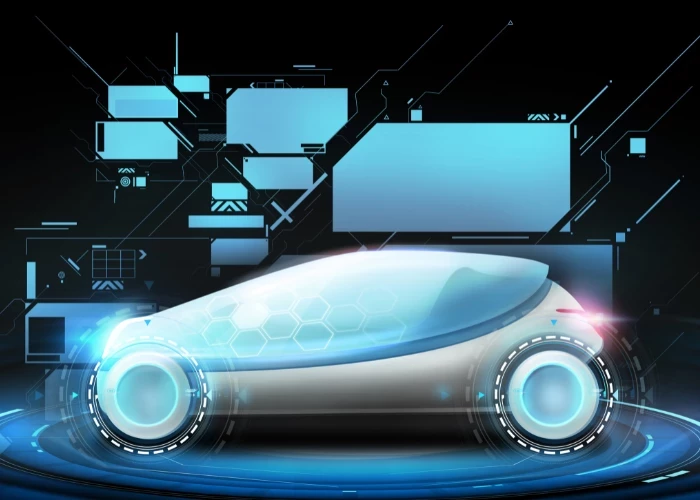Canatu – Bringing surfaces to life
Add bookmarkImagine a car without mechanical controls – a vehicle with a smart yet seamless interior that pleases the eye; a car where the functions are cleverly hidden within the surfaces, but at the same time formed into 3D shapes for easy operation.
With Canatu’s materials, you can turn a 2D display into a 3D-shaped user interface. In a 2D world, the driver needs to concentrate on finding the car’s functions. But with 3D-shaped buttons and sliders, the driver finds them by touch – decreasing driver distraction and enabling increased safety while on the move.
From mechanical controls to software-based touch electronics
The 3D touch surfaces allow for complete freedom for designers to innovate, while mimicking traditional functions with sensor solutions that utilize muscle memory. For example, when controlling the volume of the stereo with a rotary dial, haptic feedback informs the user when the function has been completed.
One key advantage of making the switch from mechanical buttons and controls to a software and sensor-based solution is that they can be updated over the air – this opens up the opportunity of upgrade sales after the initial purchase to add functions or personalization features to your interiors.
Ergonomics of smart surfaces
Large, coast-to-coast displays are becoming increasingly common – that means the vehicle requires a control unit for using the screen or HUD, because the driver simply cannot reach the furthest edges of the screen while driving.
Looking further ahead, the optimal position of those controls might be in a different place when the car can drive itself. In this case, the control unit could be simply integrated into the leather arm rest.
The steering wheel also becomes an even-more valuable source of control for the vehicle’s most commonly used functions, where it is completely natural to swipe with your thumb.
Giving the driver a living-room experience on four wheels
As the automotive industry evolves over time, the interior design of the car is also changing. Interiors are now offering a living-room type experience, bringing the challenge of how to integrate vehicle functions seamlessly into different materials. With Canatu films and sensors, you can integrate touch to textiles or leather, follow the shapes and contours of the dashboard, or use the backs of the seats for integrating displays or controls smoothly into the existing shapes, instead of adding flat displays or clunky mechanical controls.
Illumination for button discovery and ambient lighting
The illumination of interiors is both a safety critical and design element. The transparency of Canatu CNB films means that you can easily find touch buttons underneath translucent materials with the help of backlit icons. You can also adjust the interior ambient lighting according to your mood or driving mode. Due to the properties of CNB, a pure white light can be achieved. On the other hand, as a carbon-based material, Canatu provides deep black for surfaces designed to remain black until lit.
Enabling autonomous driving in any weather
Current LED headlights do not generate heat and may become obscured in cold or humid weather conditions. Similarly, the sensors assisting driving, like those for adaptive cruise control, can freeze and stop working – which is a big concern if it happens on the highway.
With the 3D-shaped sensor heaters keeping lights and sensors working perfectly, the car can still be used safely, despite the snow storm or monsoon rain. Looking to the future, when autonomous vehicles fully rely on sensors to operate safely, Canatu’s solutions ensure every sensor will work reliably in any weather.
Any surface can be smart
Canatu offers transparent, stretchable and formable films and sensors that enable 3D-shaped touch surfaces for automotive interiors, and 3D-shaped heaters for lights and ADAS sensors. With the help of Canatu CNB materials, any surface can be smart – it can be integrated into displays, plastic, glass, leather or textiles and shaped into 3D.
Award-winning innovations
Canatu has been awarded with three prizes for its design, materials and fit to the automotive industry.
The German Design Council awarded the Canatu Cockpit with a Gold prize in the German Design Awards 2019. The judgement described the Cockpit as “a superb controller-based function system featuring tactile feedback, sensors and high-quality materials – a design that is consistent down to the last detail, creating an intriguing user experience.”
But it is not just about the design. It is also about combining intelligent materials, expert engineering and a high degree of innovation into products and production technologies. This approach gained Canatu a silver award in the Materialica Design + Technology competition in October 2018.
Canatu’s brand also won the Automotive Brand Contest, where the outstanding product and communications design captured the attention of the automotive industry.











